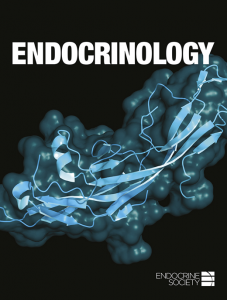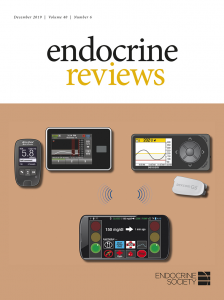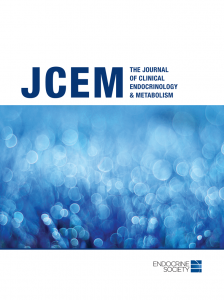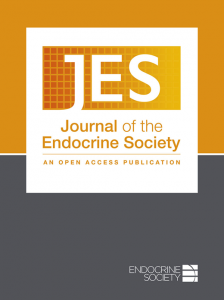For the fifth year in a row, Endocrine News spoke with editors from Endocrine Society journals to get the scoop on the top endocrine discoveries of 2019. Here is part 3 of Eureka! 2019.
Endocrinology associate editor David Grattan, PhD, BSc, professor of neuroendocrinology at the University of Otago in Dunedin, New Zealand chose “Fibroblast Growth Factor-21 Controls Dietary Protein Intake in Male Mice,” by Ryan, K.K., et. al. from May.
“What I liked about this study was that it provided an insight into a previously unrecognized neuroendocrine feedback pathway regulating dietary protein intake.”
In this study, researchers uncover the neuroendocrine mechanism that regulates dietary protein, which is not stored, unlike carbohydrates and fats. They propose that fibroblast growth factor-21 (FGF21), which is secreted in response to low protein or amino acid levels, is the likely candidate and conducted experiments to determine whether FGF21 would induce intake of carbohydrates or protein in male mice. FGF21 increased protein intake, while reducing carbohydrate and fat intake. The study suggests that hepatic FGF21 is secreted in times of protein restriction, but not carbohydrate and fat restriction, signaling the brain that protein is needed.
“What I liked about this study was that it provided an insight into a previously unrecognized neuroendocrine feedback pathway regulating dietary protein intake. In doing so, it provided a clear explanation of the functions of a liver-derived hormone (FGF-21) that had been known about for some time, but for which a physiological context was lacking,” Grattan explains. “Here they showed that the hormone was secreted in response to low protein, and that it acts in the brain to promote preferential intake of protein over carbohydrates, thereby restoring macronutrient balance.”
Below are the studies from the “Eureka 2019!” article in the December Endocrine News:

Sex Differences in Inflammatory Responses to Adipose Tissue Lipolysis in Diet-Induced Obesity,” Singer, K., et. al. February 2019
“Fibroblast Growth Factor-21 Controls Dietary Protein Intake in Male Mice,” Ryan, K.K., et. al. fMay 2019
“The Gut Microbiome Derived from Anorexia Nervosa Patients Impairs Weight Gain and Behavioral Performance in Female Mice,” Sudo, N., et. al. October 2019
“Neonatal Estrogen Causes Irreversible Male Infertility via Specific Suppressive Action on Hypothalamic Kiss1 Neurons,” Tsukamura, H., et. al. May 2019
“Transgenerational Bisphenol A Causes Deficits in Social Recognition and Alters Postsynaptic Density Genes in Mice,” Rissman, E.F., et. al. August 2019
“Gestational Diabetes Adversely Affects Pancreatic Islet Architecture and Function in the Male Rat Offspring,” Dolinsky, V.W., et. al. August 2019

“Genetic Risk Scores for Diabetes Diagnosis and Precision Medicine,” Mahajan A., et al. July 2019

“Lipid Metabolism Links Nutrient-Exercise Timing to Insulin Sensitivity in Men Classified as Overweight or Obese,” Wallis G.A. and Gonzalez J.T., et. al. October 2019
“DNA Methylation of Tumor Suppressor Genes in Pituitary Neuroendocrine Tumors,” Picó A., et. al. April 2019

“Depression in Nonclassical Hypogonadism in Young Men,” Korenman, S.G. November 2018
“Magnetic Resonance Imaging Reveals Human Brown Adipose Tissue Is Rapidly Activated in Response to Cold,” Steinberg, G.R. and Morrison, K.M., et. al. October 2019
“E-Cigarette Exposure Delays Implantation and Causes Reduced Weight Gain in Female Offspring Exposed In Utero,” Caron K.M., et. al. October 2019
New England Journal of Medicine
“An Anti-CD3 Antibody, Teplizumab, in Relatives at Risk for Type 1 Diabetes,” Herold, K.C., et. al. August 2019

